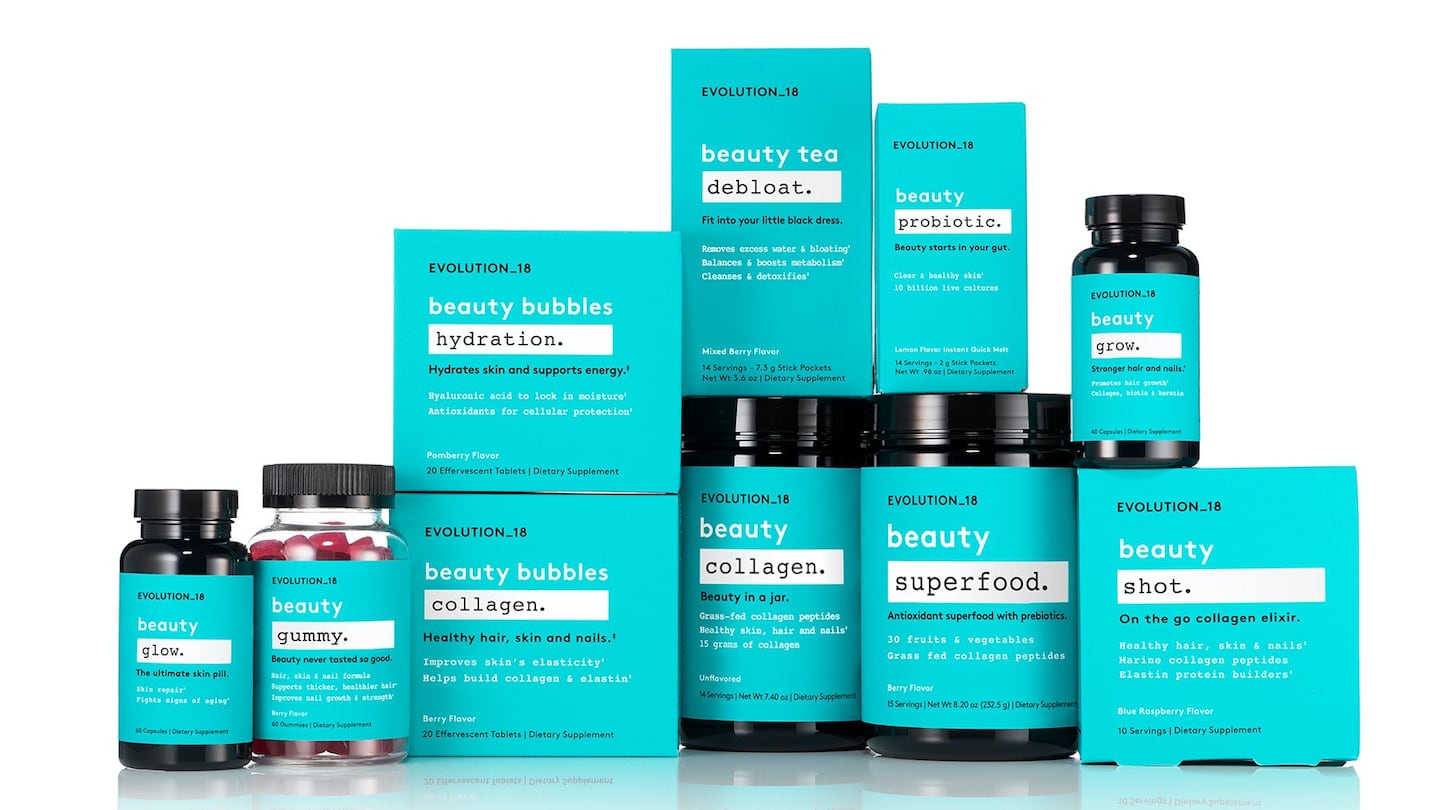
The Business of Fashion
Agenda-setting intelligence, analysis and advice for the global fashion community.

Agenda-setting intelligence, analysis and advice for the global fashion community.

MONTCLAIR, United States — Wellness has a bit of a class divide — there are companies like Goop that cater to women who will pay $90 for "Madame Ovary" dietary supplements, and then a mass of cheap, undifferentiated products, from hair growth gummies to dubious laxative-infused teas hawked on Instagram and Amazon.
Enter Bobbi Brown. Since leaving her beauty brand in 2016 after nearly three decades, she has repositioned herself as a wellness guru for the 99 percent. Brown's line of supplements, Evolution_18, launched on QVC, and she curated a wellness-themed section for mid-market department store chain Lord & Taylor's since-closed Manhattan flagship that was stocked with everything from powders to sneakers.
<span>It's not just about a product, it's about a platform to educate consumers on health and wellness.</span>
The deal is a bet by the world's largest retailer that, a decade or more into the clean living boom, wellness has become mainstream enough to support a mass consumer brand. The market for pills, supplements and other "ingestibles" meant to make skin smoother, hair shinier and gut bacteria happier has been dominated by luxury-focused players like Sephora, Net-a-Porter and Nordstrom. They position these items as aspirational products, with the high prices to match. Walmart's decision to carry Evolution_18 marks one of the most aggressive attempts by a mass retailer to compete in the space on the strength of a brand rather than as a cheaper alternative.
The nexus between beauty and wellness is a potentially lucrative niche. Global supplement sales are growing about 5 percent a year, totalling $106.4 billion in 2018, with the US making up about a quarter of that, according to Euromonitor International, a market research service. GNC and the Vitamin Shoppe are the top specialty retailers in the category. However, both chains have struggled to stay on top of new trends in recent years and have closed stores amid falling sales.
ADVERTISEMENT
<span>There is an overlap between beauty consumers and those interested in health and wellness.</span>
Brown, who sold Bobbi Brown Cosmetics to Estée Lauder in 1995 and stayed on as chief creative officer for nearly 22 years, said wellness was a natural choice for her second act. She released her ninth book, the wellness-themed "Beauty From the Inside Out," the day she left Estée Lauder in 2016. (By contrast, previous books largely stuck to makeup advice; her last title was "Everything Eyes").
"I always believed it, I always taught it, I always discussed it," she said. "[A supplement line] was certainly something that I've always wanted to do. It's not just about a product, it's about a platform to educate consumers on health and wellness."
<span>I always believed it, I always taught it, I always discussed it</span>
"It's smart for [Brown] to partner with Walmart," said Liz Dunn, a retail analyst and founder and CEO of Pro4ma. "Brands are learning that it makes sense to partner with companies that have a built-in audience. It's much easier to build your business, particularly a consumable business, with smart distribution versus trying to do it on your own."
The line launches with ten products, including effervescent hyaluronic acid tablets, drinkable collagen shots and a gummy to support hair and nail growth, all packaged in Instagram-friendly "Caribbean blue" inspired by Brown's Bahamian vacation home. Her name doesn't appear on the box.
<span>A l</span><span>ot of things that are big in wellness involve just switching on the belief button.</span>
There are few studies to support many of the often vague claims that products make. Individual ingredients may offer some clinical evidence of efficacy, but medical experts advise caution with supplements that use multiple ingredients and proprietary blends. There are almost never studies on these completed products because they aren't required by regulators. Plenty of people are happy to take a leap of faith when shopping for supplements, but differentiating products made from similar ingredients can be hard, as all make the same claims to give consumers better skin, hair or digestion.
"A lot of things that are big in wellness involve just switching on the belief button," said Beth McGroarty, vice president of research at the Global Wellness Institute. "You don't have that kind of medical evidence behind you, so there's a lot of raging dispute."
<span>We are working with very credible partners and we rely on our supply chain partners and our manufacturers to really understand the rules and regulations</span>
In the US, the FDA does not regulate supplements to the degree it does pharmaceuticals. It has published many warnings and alerts about adulterated over-the-counter supplements. Many of these have been about weight loss supplements or products that claim to treat cancer, but also biotin, a common ingredient in hair and nail supplements, which can cause false lab results. In February, the FDA released a statement that the agency will look to strengthen regulations and reform its oversight capabilities of the supplement industry.
Related Articles:
[ Why the Beauty Industry Is Betting Big on SupplementsOpens in new window ]
[ Is There a Bobbi Brown After Bobbi Brown?Opens in new window ]
[ Why Beauty Needs to Jump on the Wellness BoomOpens in new window ]
The company reported a long-awaited lift in net sales in its third quarter results, with increases from skincare leading the way, but clouds persist over its China recovery.
As awareness grows about the perils of sleep deprivation, beauty and wellness brands are flooding the market with an array of products to cash in on the booming opportunity.
Going public is usually a pivotal moment in a company’s history, cementing its heavyweight status and setting it up for expansion. In L’Occitane’s case, delisting might be a bigger conduit for growth.
Brands say they’re barreling ahead with marketing and commerce on the app, even as the clock starts ticking for owner ByteDance to sell it or shut it down.